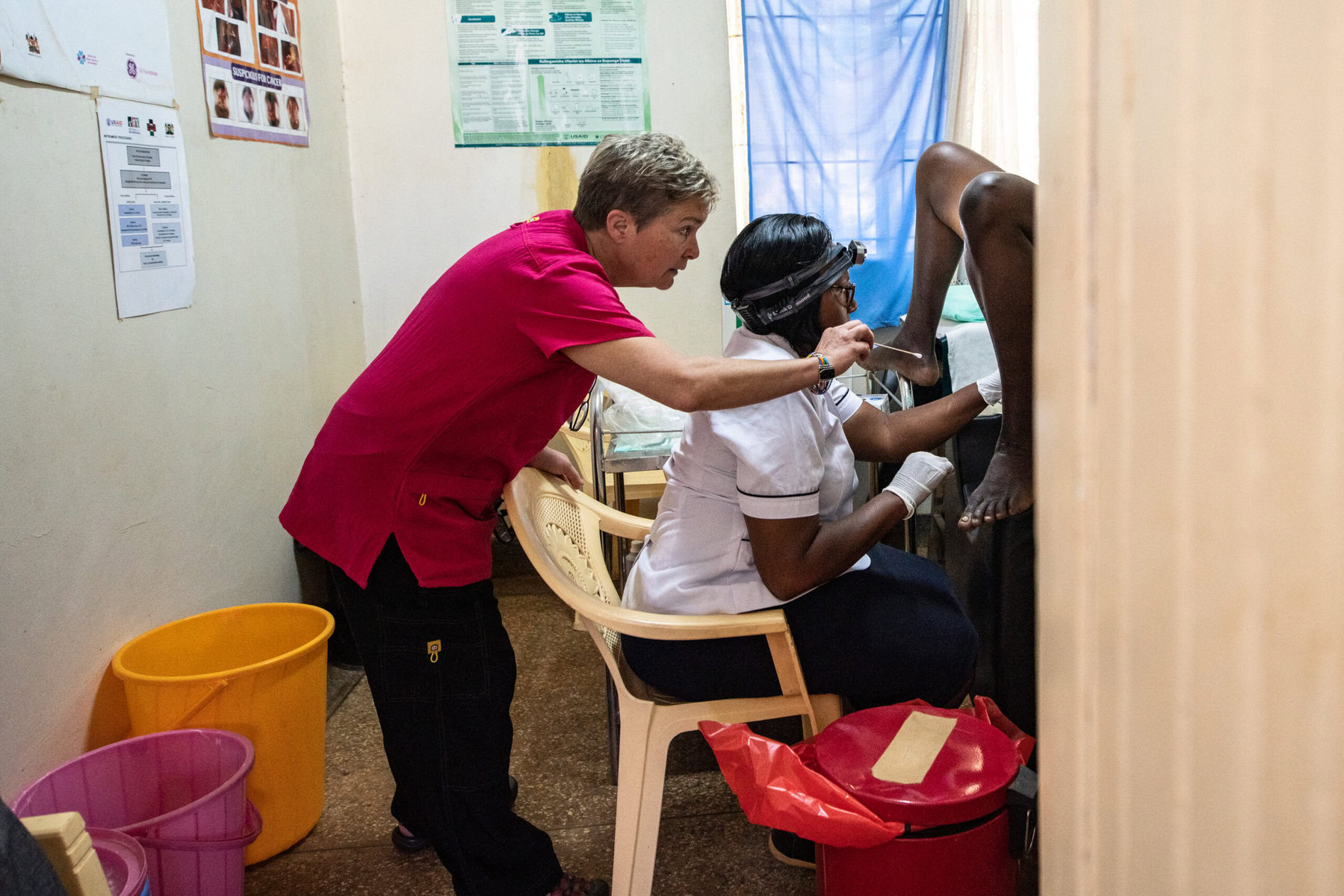“While I may have removed some 10,000 cancers in 35 years as a surgeon in busy California hospitals, I realized how crucial it is to prevent cancer in the first place,” Godfrey says about his motivation. During his most recent visit to Matibabu in April 2024, he delivered a new screening machine, AmpFire. This and other new technology like the HPV E6/E7 oncoprotein self-test enables women to test themselves at home or in the hospital by simply using a brush that swabs fluid and cells from the cervical surface. They then place the tip of the brush in a tube that gets transported to the testing machine at Matibabu Hospital, which can test up to a thousand samples per day. It only takes two days to set up the equipment, and the lab technician then manages testing independently.
“This is truly a revolution,” says Richard Godfrey. “We have never had an opportunity like this to eliminate a cancer.” When he first visited the region in 2012, Matibabu Hospital was a simple one-story clinic. Rotary grants helped build additions and transform the hospital into a bright, state-of-the-art clinic with three primary doctors, including an obstetrician-gynecologist and 10 nurses. The so-called Boda Boda girls, trained local motorcycle riders, get a bonus when they bring in female patients for cancer screenings.
Crushed by negative news?
Sign up for the Reasons to be Cheerful newsletter.
The clinic staff communicates the test results back to the patients through WhatsApp on mobile phones and makes appointments for those who test positive for HPV or cancer — between 10 and 20 percent — to undergo further screening. “When a woman tests negative, she does not need to return for three to five years, which saves around 80 percent of the screening work,” Godfrey says, “a major advantage of this method over the less accurate pap smears.” As many as a million women ages 30 to 60 need testing in the region, so the efforts are just getting started.
“With the HPV E6/E7 oncoprotein self-test, we can get results right there in the field in 15 minutes, screen up to 500 women a day and immediately treat them,” Miskell says about the difference between the two tests.
Without testing, a woman usually doesn’t realize she has cervical cancer until she develops bleeding, loses weight or has more advanced signs of disease. “These women are often ostracized even by their own families,” Miskell says. Once cervical cancer spreads, it is rarely controlled even with surgery, radiation and chemotherapy — treatments hardly available or affordable in low-income countries like Kenya.

Six of the 47 women that Miskell’s team examines that day at Matibabu have precancerous cells and are treated on the spot, and one is diagnosed with cancer. When a biopsy reveals more advanced cancer, the nurses send the patients to a larger regional hospital for care, but in the case of the 32-year-old widow, the cancer has advanced too far for treatment, and all the doctors can offer is pain management and palliative care.
“Women are not dying because of untreatable diseases,” the late WHO scientist and OB/GYN Mahmoud Fathalia famously observed. “They are dying because societies have yet to make the decision that their lives are worth saving: We have not yet valued women’s lives and health highly enough.”
Nowhere is that more obvious than with cervical cancer. When the nurses detect abnormal cells (dysplasia) early, they can treat it immediately. Handheld thermocoagulation devices that the PINCC team delivers now make it possible to eradicate these precancerous cells in just 20 seconds. The white, battery-powered device fits into a backpack and costs less than $1,500, but delivers a powerful impact by applying targeted 100° Celsius heat that destroys the abnormal cells in the cervix. Miskell loves that it is easy to train the local health care staff on how to use it: “It is literally impossible to harm someone, so it’s a great device,” she says.


